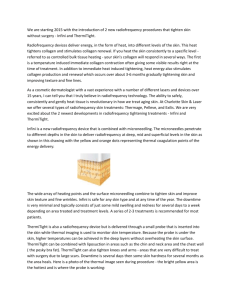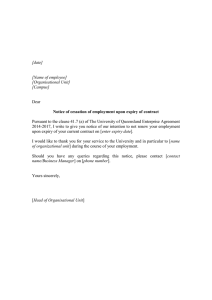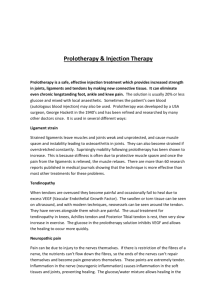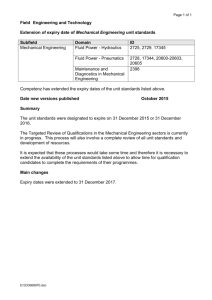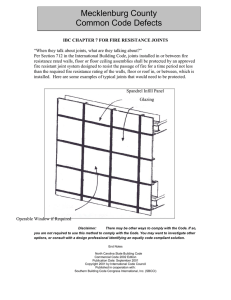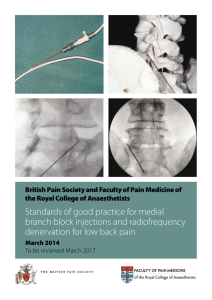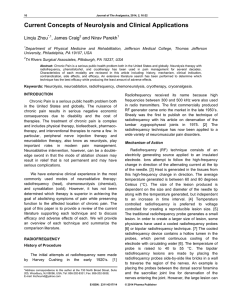Patient Information Leaflet Radiofrequency Denervation of Spinal
advertisement
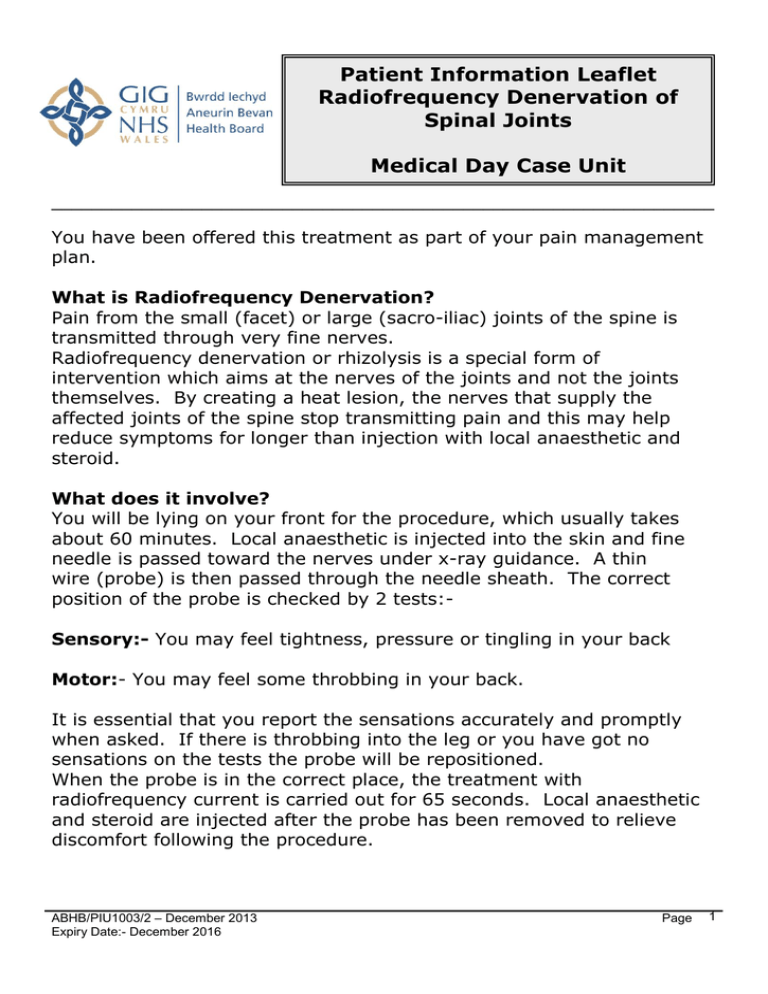
Patient Information Leaflet Radiofrequency Denervation of Spinal Joints Medical Day Case Unit __________________________________________________________________ You have been offered this treatment as part of your pain management plan. What is Radiofrequency Denervation? Pain from the small (facet) or large (sacro-iliac) joints of the spine is transmitted through very fine nerves. Radiofrequency denervation or rhizolysis is a special form of intervention which aims at the nerves of the joints and not the joints themselves. By creating a heat lesion, the nerves that supply the affected joints of the spine stop transmitting pain and this may help reduce symptoms for longer than injection with local anaesthetic and steroid. What does it involve? You will be lying on your front for the procedure, which usually takes about 60 minutes. Local anaesthetic is injected into the skin and fine needle is passed toward the nerves under x-ray guidance. A thin wire (probe) is then passed through the needle sheath. The correct position of the probe is checked by 2 tests:Sensory:- You may feel tightness, pressure or tingling in your back Motor:- You may feel some throbbing in your back. It is essential that you report the sensations accurately and promptly when asked. If there is throbbing into the leg or you have got no sensations on the tests the probe will be repositioned. When the probe is in the correct place, the treatment with radiofrequency current is carried out for 65 seconds. Local anaesthetic and steroid are injected after the probe has been removed to relieve discomfort following the procedure. ABHB/PIU1003/2 – December 2013 Expiry Date:- December 2016 Page 1 Does it work and for how long? You would already have had a good response to diagnostic injections so radiofrequency offers you a realistic chance of good long term pain relief. You may not feel any benefit for 2 – 3 weeks. Symptoms can be relieved for up to a year or longer in about half of all patients. Unfortunately the nerve can regenerate so your pain may come back but a repeat procedure is likely to be beneficial if you respond to the first. What happens on the day? You can eat and drink normally. Take all your tablets as normal unless instructed otherwise. Bring a list of your tablets with you. You will be asked to change in a hospital gown. A nurse will take some details from you to check that you are fit for your procedure. You will be asked to sign a consent form. The doctor will be able to answer any questions you may have at this time. You will be taken on a trolley to theatre. After you have had your procedure, you will need to stay with us for about 1 hour before you can go home. You must not self drive or go home on public transport. Have a responsible adult to stay with you on the day. After your procedure take things easy for the rest of the day. Do not do any excessive exercise or heavy work for the first few days. Keep the injection site clean and dry. Remove the dressing after 24 hours. Continue to take your pain tablets until you notice improvement in your symptoms. Side effects and complications: Due to the procedure: Common Soreness / bruising at the injection site Temporary increase of pain (up to 10 days) ABHB/PIU1003/2 – December 2013 Expiry Date:- December 2016 Page 2 Rare Headache Haematoma Infection at the injection site Allergic reaction New pain Worsening pain Very rare Convulsions (fits) Temporary or permanent disabling nerve damage Cardiac arrest (stopping of the heart) Due to the injected steroid: Facial flushing for a few days Temporary alteration of usual menstrual cycle (females) Temporary increase in your sugar levels (diabetics). You must tell us if:You may be pregnant You are taking warfarin / clopidogrel You have an allergy to latex, medicines and food Your medical condition has changed since you last saw the consultant You suffer from epilepsy You suffer from diabetes You have cold or temperature You are treated with antibiotics You have been admitted to hospital You are a wheelchair user and you might need a help with getting out of it You are hard of hearing/deaf You are partially sighted/registered blind You need an interpreter You are very nervous about needles, hospitals or medical practitioners ABHB/PIU1003/2 – December 2013 Expiry Date:- December 2016 Page 3 For more information contact:Royal Gwent Hospital on Tel. No:- 01633 - 234938 Consultants: Dr. Tzvetanka Ivanova-Stoilova Dr. Sonia Wartan Nevill Hall Hospital on Tel. No:- 01873 – 732979 Consultants: Dr. Sue Jeffs Dr. Mandar Joshi ABHB/PIU1003/2 – December 2013 Expiry Date:- December 2016 Page 4
